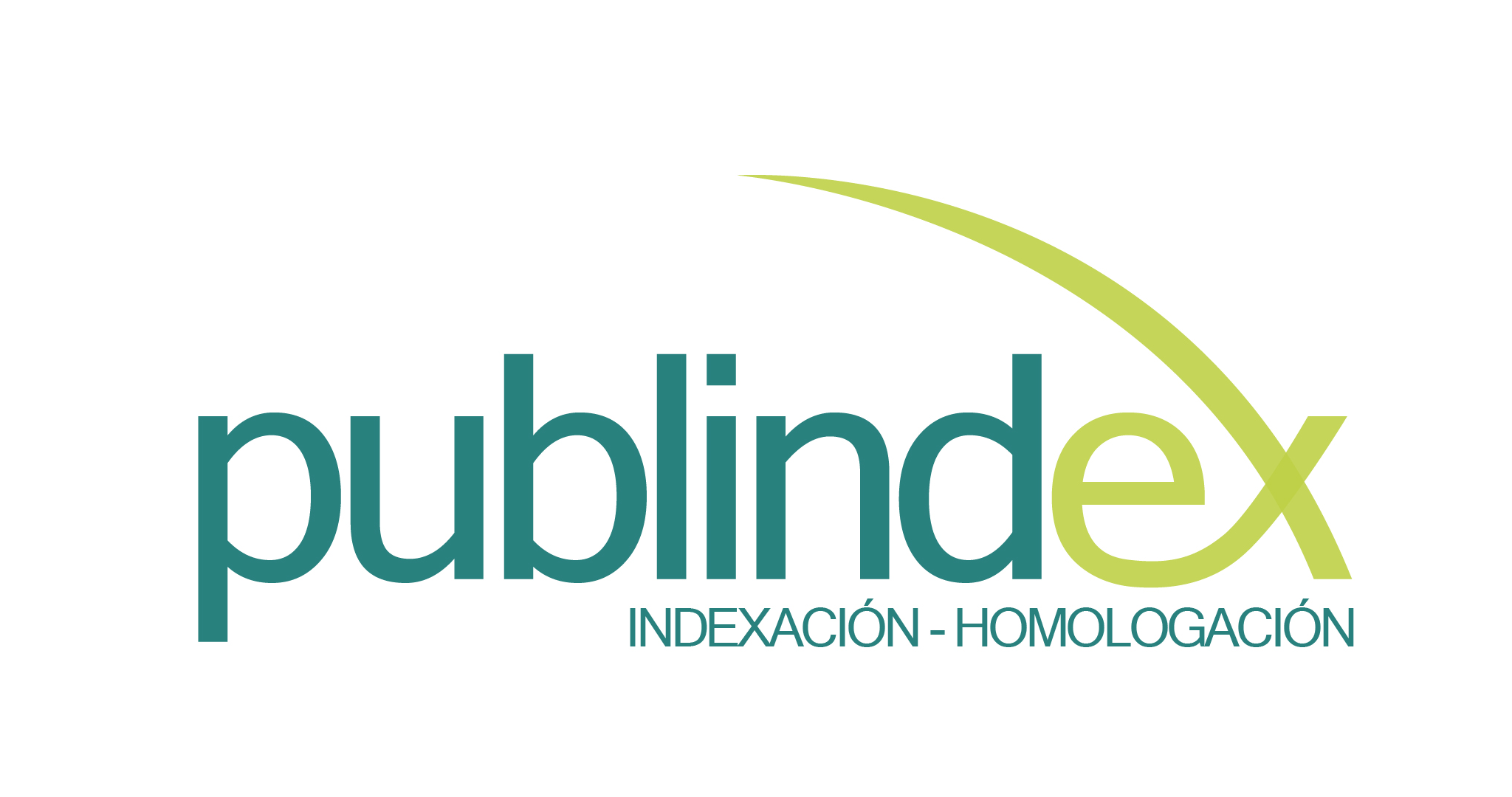Evaluación del nivel de madurez en la gestión de proyectos de una empresa prestadora de servicios públicos
DOI:
https://doi.org/10.17981/econcuc.42.2.2021.Org.7Palabras clave:
Gestión de proyectos, Madurez organizacional, Cultura de proyectosResumen
Existe una relación directamente proporcional entre la efectividad en gestión de proyectos y el cumplimiento de los objetivos corporativos. Por tanto, consolidar un alto grado de madurez en la gestión de proyectos es un proceso imperioso para las organizaciones que basan su accionar en estos. El presente manuscrito muestra los resultados de la evaluación de la madurez en la gestión de proyectos de una empresa prestadora de servicios públicos en el departamento del Caquetá. La investigación presentó un enfoque mixto, pues recurrió a las encuestas y las entrevistas como instrumentos para la obtención de información. Los resultados fueron valorados bajo los postulados de Harold Kerzner, permitiendo evidenciar que la organización se encuentra en el primer nivel de madurez, lo cual no es sinónimo de caos total, pero sí de la necesidad de generar acciones desde la alta dirección para la consolidación de una cultura de proyectos, que permita, en el mediano plazo subsanar las deficiencias y potencializar las ventajas de la organización.
Descargas
Citas
Arce, S. y López, H. (2010). Valoración de la gestión de proyectos en empresas de Bogotá. Nivel de madurez en gestión de proyectos. Revista EAN, (69), 60–87. https://doi.org/10.21158/01208160.n69.2010.517
Atlas ti. (versión 6). Análisis cualitativo de Datos. [Software]. Berlin: Scientific Software Development GmbH. Disponible en https://atlasti.com/es/
Castellanos, T., Gallego, J., Delgado, J. y Merchán, L. (2014). Análisis comparativo entre los modelos de madurez reconocidos en la gestión de proyectos. [Tesis de Especialización]. Universidad San Buenaventura de Cali, Santiago de Cali, Colombia. Disponible en http://bibliotecadigital.usb.edu.co/bitstream/10819/2163/2/1131056_1131054_1131185_ANEXO_Cap%C3%Adtulo.pdf
Cuero, E. y Pérez, M. (2020). Modelo para la implementación de la Oficina de Gestión de Proyectos (PMO), para la Oficina de Ciencia, Tecnología e Innovación del departamento del Huila. [Tesis de Maestría]. Universidad Externado de Colombia, Bogotá, Colombia. Disponible en https://bdigital.uexternado.edu.co/handle/001/3566
Del Cioppo, J. y Bello, M. (2018). Indicadores de impacto social para evaluación de proyectos de vinculación con la colectividad. Económicas CUC, 39(1), 105–116. http://dx.doi.org/10.17981/econcuc.39.1.2018.07
Gómez, C. (2019). Diseño de una propuesta de implementación de una PMO (Project Management Office) en el Comité Departamental de Ganaderos del Caquetá. [Tesis de Maestría]. Universidad Externado de Colombia, Bogotá, Colombia. Disponible enhttps://bdigital.uexternado.edu.co/handle/001/2540
Gómez, C., Sánchez, V. y Fajardo, M. (2018). Los proyectos y sus dimensiones: una aproximación conceptual. Contexto, 7, 57–64. Disponible en https://revistas.ugca.edu.co/index.php/contexto/article/view/885
Gómez, C., Sánchez, V. y Ramón, L. (2017). Incorporar las TIC a los procesos de enseñanza-aprendizaje: Una lectura desde el actuar docente en educación superior. Horizontes Pedagógicos, 19(1), 48–54. https://doi.org/10.33881/0123-8264.hop.19106
Gómez, R. (2009). Manual de Gestión de Proyectos. Medellín: Editorial Universidad de Antioquia. Recuperado de https://abacoenred.com/wp-content/uploads/2015/10/manual_gestion_proyectos.pdf
Hernández, R., Fernández, C. y Baptista, L. (2014). Metodología de la Investigación. 6 ed. México, D.F.: Mc Graw Hill.
Kerzner, H. (2005). Using the Project Management Maturity Model. (2 Ed.). USA: Jhon Wiley & Sons.
Moreno, N., Sánchez, L. y Velosa, J. (2018). Introducción a la gerencia de proyectos: conceptos y aplicación. Bogotá, D.C.: Ediciones EAN. Disponible en http://hdl.handle.net/10882/9547
Ñungo, L., Torres, B. y Palacios, J. (2018). Modelo de nivel de madurez para los procesos de emprendimiento en las pymes colombianas. Revista Ingeniería Solidaria, 14(26), 1–17. https://doi.org/10.16925/in.v14i26.2456
Parviz, F. & Levin, G. (2002). The advanced Project Management Office. Boca Raton: St. Lucie Press. https://doi.org/10.1201/9781420000375
PMI. (mar. 5, 2021). What is Project Management? pmi.org. Available: https://www.pmi.org/about/learn-about-pmi/what-is-project-management
PMI. (2017). Guía de los Fundamentos para la Dirección de Proyectos – Guía PMBOK (6 ed.). México, D.F.: South- Western.
Shek, I. (2013). El enfoque de gestión de proyectos en las organizaciones dedicadas a proyectos de investigación. Caso: Grupo de Investigación GIRH. Revista EAN, (74), 152–161. Disponible en https://journal.universidadean.edu.co/index.php/Revista/article/view/742
Sparano, H. (2011). Impacto de las áreas de conocimiento de la administración de proyectos a través del PMBOK 2008. Dimensión Empresarial, 9(1), 64–73. Disponible en http://ojs.uac.edu.co/index.php/dimension-empresarial/index
Teherán, Y. y Torres, J. (julio, 2019). Diseño de un modelo de evaluación y medición de la madurez organizacional en gestión de proyectos y aplicación a compañías de armadores de Colombia. Conferencia presentada 17th LACCEI International Multi-Conference for Engineering, Education, and Technology, LACCEI, Montego Bay, Jamaica. https://doi.org/10.18687/LACCEI2019.1.1.385
Terrazas, R. (2009). Modelo conceptual para la gestión de proyectos. Perspectivas, (24), 165–188. Disponible en https://www.redalyc.org/articulo.oa?id=425942160009
Triana, S. (2018). Modelo para el diagnóstico de madurez en la gestión de proyectos para MIPYM ES de mantenimiento del sector metalmecánico en la Localidad de Kennedy. [Tesis de Maestría]. Universidad Militar Nueva Granada, Bogotá, D.C., Colombia. Recuperado de http://hdl.handle.net/10654/18140
Wendler, R. (2012). The maturity of maturity model research: A systematic mapping study. Information and Software Technology, 54(2), 1317–1339. https://doi.org/10.1016/j.infsof.2012.07.007

Publicado
Cómo citar
Número
Sección
Licencia
Derechos de autor 2021 ECONÓMICAS CUC

Esta obra está bajo una licencia internacional Creative Commons Atribución-NoComercial-SinDerivadas 4.0.
Usted es libre de:
- Compartir — copiar y redistribuir el material en cualquier medio o formato
- La licenciante no puede revocar estas libertades en tanto usted siga los términos de la licencia
Bajo los siguientes términos:
- Atribución — Usted debe dar crédito de manera adecuada , brindar un enlace a la licencia, e indicar si se han realizado cambios . Puede hacerlo en cualquier forma razonable, pero no de forma tal que sugiera que usted o su uso tienen el apoyo de la licenciante.
- NoComercial — Usted no puede hacer uso del material con propósitos comerciales .
- SinDerivadas — Si remezcla, transforma o crea a partir del material, no podrá distribuir el material modificado.
- No hay restricciones adicionales — No puede aplicar términos legales ni medidas tecnológicas que restrinjan legalmente a otras a hacer cualquier uso permitido por la licencia.

 English
English
 Español (España)
Español (España)














